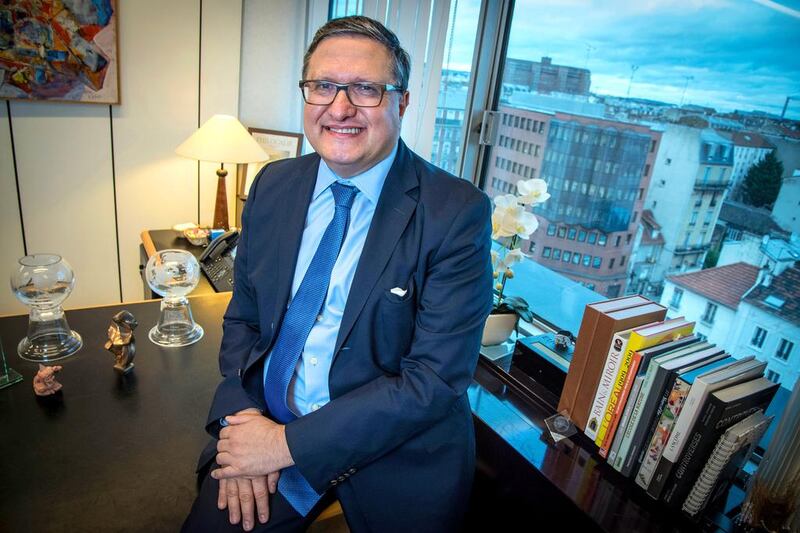Emmanuel Lulin is a ‘CEO’ with a difference. As the chief ethics officer for L’Oréal, the world’s largest cosmetics company, he is responsible for promoting what he calls a “culture of integrity” across the French group’s businesses. Employees receive a code of business ethics, while an online ‘whistle-blowing’ system allows them to flag any concerns. Here, Mr Lulin explains why more Middle East corporations are embracing ethical business frameworks – and why that makes good business sense.
‘Chief ethics officer’ is not a job title you hear often. Are you a small crowd?
We are growing in number, but it is never enough obviously. It is a trend that started a while ago driven, especially in the United States, by law. But the approach of European corporations is driven to a large extent by values. And the best system is a mix of the two.
Give us examples of your day-to-day responsibilities.
The role of a chief ethics officer is to raise awareness of what a culture of integrity is. This is done in a context where large companies, especially multinationals, are expanding. Very often – as is the case for L’Oréal – we expand in emerging countries, or new economies. Those countries are characterised by a number of things, often including challenges in two areas: Human rights and business practices.
Is the rise of the ‘chief ethics officer’ a trend you see in the Middle East?
There is more interest – and sometimes substantial interest. Generally speaking, in the Middle East, there is common thinking on many values – the approach can be similar. There is a willingness to understand, and I am very interested to see corporations trying to find a way to operate better.
How can Middle East companies improve their ethical standards and practices?
To work on the business case is probably the first thing to do. And this should be done at the highest level of the corporation – the board of directors to start with, the executive committees and the most senior management. Once you have a strong conviction of the business case, you can benchmark your organisation and see where you stand, and where you have loopholes.
And what is the business case for being an ‘ethical’ corporation?
In a nutshell, an unethical company – a company with a bad business culture or bad culture of integrity – may disappear. This is like capital punishment for a company. And the number of cases in the last 20 years is sufficient to prove this is, more than ever, a reality. The second thing is that a company with a good culture of integrity is worth substantially more than a company with a weak culture. Down the road, a company’s good ethics is like its licence to operate. When you misbehave, you may lose your licence to operate.
L’Oréal has been recognised by the Ethisphere Institute as one of the world’s most-ethical companies. What areas of improvement are there still to make?
We are proud but at the same time we take it modestly, and continue to increase the expectations on all of us. Our areas of improvement are probably in the comfort to speak up – an area where we encourage all L’Oréal employees.
And how do you encourage employees to do that?
You need to tell people that they are expected to speak up, and that they work in a safe working environment where they can express themselves in full. The second element of a culture of integrity is to have good justice, and that is also part of the mission of a chief ethics officer. It means a company where, for instance, we recognise talent; where the appraisals are done fairly; where we respond quickly, confidently and fairly when there is a complaint raised or where there is misconduct.
Give us some concrete examples of issues that get raised by your employees.
The type of issues that you find almost worldwide, and in most organisations. It can be about the equilibrium between the personal life and professional life. You can find issues about advertising; you can have issues about diversity. We need to reflect often on the message we are sending out about beauty, and that we respect the different types of beauty in the world. In many organisations – not specifically mine – there are issues around potential conflicts of interest, management style, et cetera.
When business ethics is raised in relation to L’Oréal, a lot of people would think of the issue of animal testing. How does that come into it?
For a long time now, L’Oréal has stopped any animal testing, directly or indirectly. It is unfortunate that it is not sufficiently known by the public – and we keep receiving questions on this.
business@thenational.ae
Follow The National's Business section on Twitter





